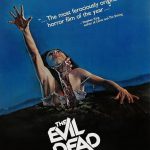Tucker and Dale vs. Evil (2010)
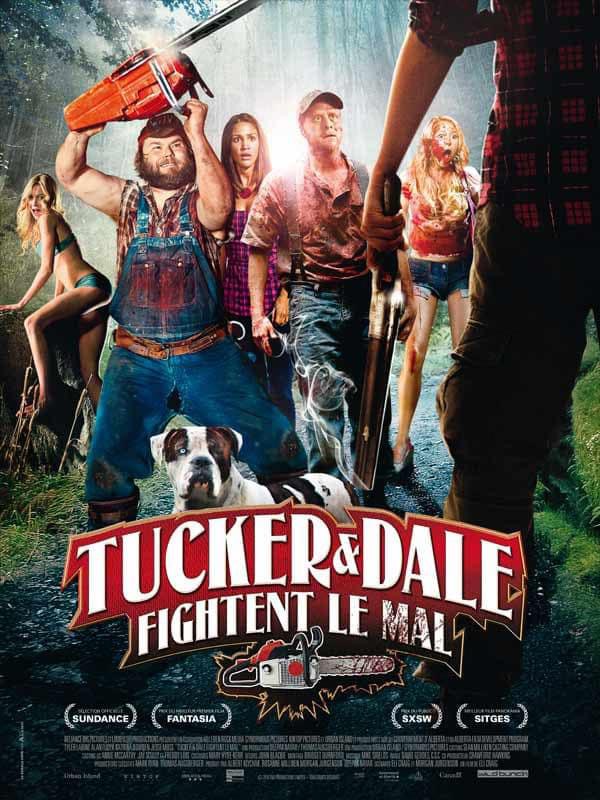
Tucker and Dale vs. Evil (2010) Review: A Clever Horror Comedy with Heart
Tucker and Dale vs. Evil, directed by Eli Craig, is a brilliant subversion of the horror genre, blending comedy with slasher film tropes in a way that’s both hilarious and surprisingly heartwarming. Released in 2010, the film turns the typical “hillbilly horror” premise on its head by offering a story of misunderstood intentions and a series of deadly, but comically absurd, accidents. With strong performances by its leads, clever writing, and a fresh take on the genre, the film has earned a cult following and is regarded as one of the more inventive horror comedies of the past decade.
Suggested videos for you:
Plot Overview
The movie centers around two well-meaning hillbillies, Tucker (Alan Tudyk) and Dale (Tyler Labine), who are heading to a rundown cabin in the woods for a relaxing weekend of fishing and fixing up their “vacation home.” At the same time, a group of stereotypical college students embark on a camping trip in the same area, only to immediately mistake Tucker and Dale for dangerous backwoods killers due to their appearance and awkward behavior.
When one of the college students, Allison (Katrina Bowden), accidentally falls and is knocked unconscious while swimming, Tucker and Dale rescue her, but the rest of the group assumes she has been kidnapped. What follows is a series of escalating misunderstandings, where the college students, in their panic and belief that Tucker and Dale are evil, accidentally cause their own violent deaths in increasingly gruesome ways. Meanwhile, Tucker and Dale are left baffled as they try to understand why the college kids keep dying around them.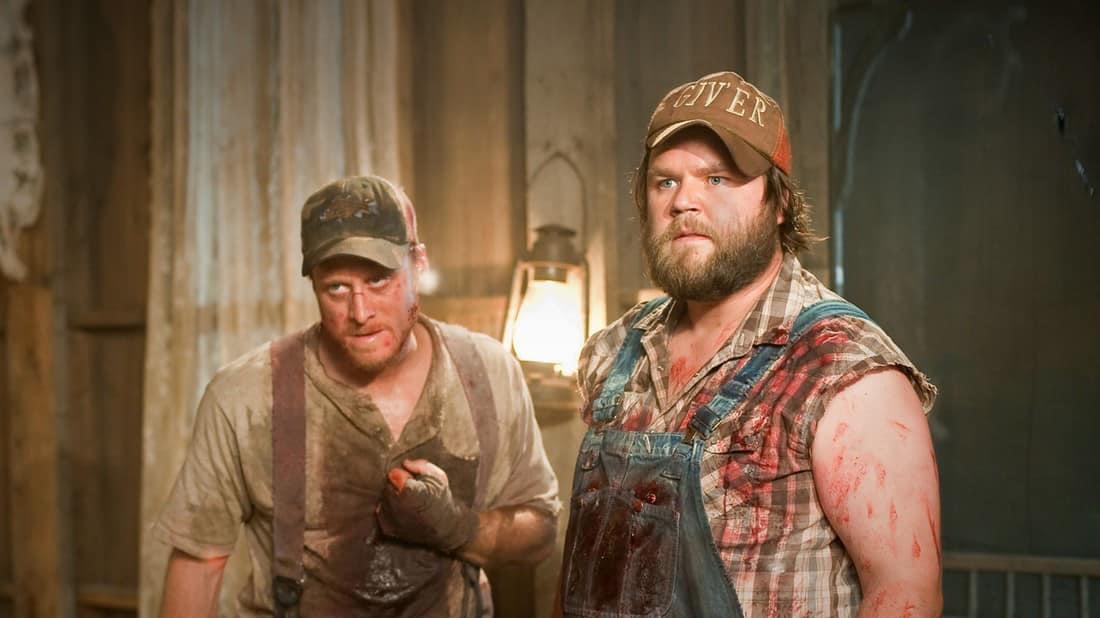
Subverting Horror Tropes
One of the film’s greatest strengths is how it plays with and subverts classic horror tropes, particularly the “hillbilly horror” genre seen in films like The Texas Chain Saw Massacre and Deliverance. In those films, rural characters are often portrayed as menacing and dangerous, but Tucker and Dale vs. Evil flips this stereotype by making Tucker and Dale the innocent, likable heroes who just want to have a quiet weekend. The real “evil” comes not from them, but from the wild misconceptions and paranoia of the college students.
The film uses this inversion to great comedic effect. The college kids’ irrational fear leads to increasingly ridiculous situations, such as a student accidentally impaling himself on a tree branch or jumping headfirst into a wood chipper in an attempt to attack Tucker. These deaths, though gory, are so over-the-top that they become more comical than horrifying. The real horror, in a sense, is the kids’ misguided assumptions and their escalating panic, which causes them to misread Tucker and Dale’s every action.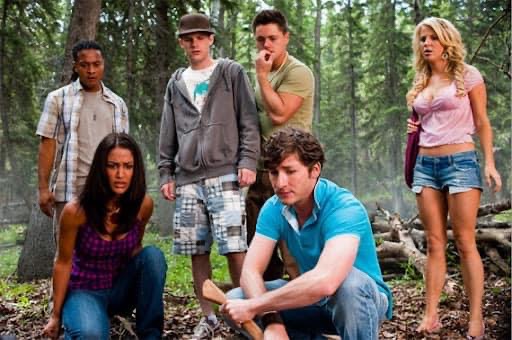
Strong Performances
Alan Tudyk and Tyler Labine are the heart of the film, and their chemistry is one of the movie’s biggest strengths. Tudyk, known for his versatile roles in both comedy and drama, brings a sharp comedic edge to Tucker, the slightly more practical of the duo, while Labine’s Dale is endearing and lovable, despite his bumbling nature. Labine’s performance, in particular, stands out because Dale, though often played for laughs, has a surprising depth—he’s self-conscious about his appearance and intelligence but genuinely kind and caring, especially when it comes to Allison.
Their genuine friendship is a refreshing contrast to the one-dimensional killers typical of slasher films, and their misunderstandings with the college students are the source of much of the film’s humor. The film also benefits from a strong supporting performance by Katrina Bowden as Allison, who forms an unexpected connection with Dale, adding a touch of sweetness to the otherwise chaotic proceedings.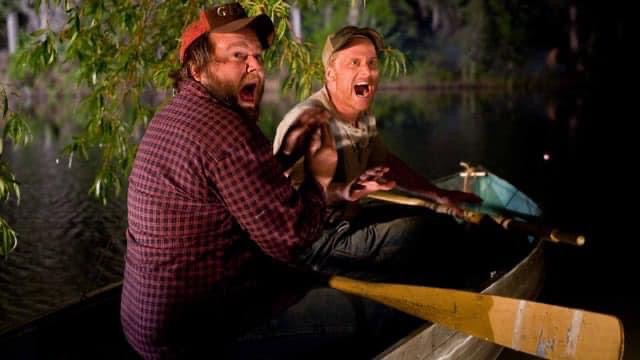
Dark Humor and Satire
While the film leans heavily into slapstick and physical comedy, much of the humor comes from its satirical take on horror conventions. The film is aware of the clichés it’s playing with—the creepy cabin in the woods, the naïve college kids, and the presumed danger of rural locals—and it mines these for laughs by twisting them into something unexpected. For example, when the college students witness Tucker and Dale hauling an unconscious Allison back to their cabin, they interpret the situation as a kidnapping, even though it’s actually an innocent rescue attempt.
The film also pokes fun at the over-the-top reactions of characters in horror films, where every action seems to escalate the danger. Here, the escalating body count comes from the sheer ineptitude of the college students, who seem more intent on fulfilling their horror movie stereotypes than actually understanding what’s going on.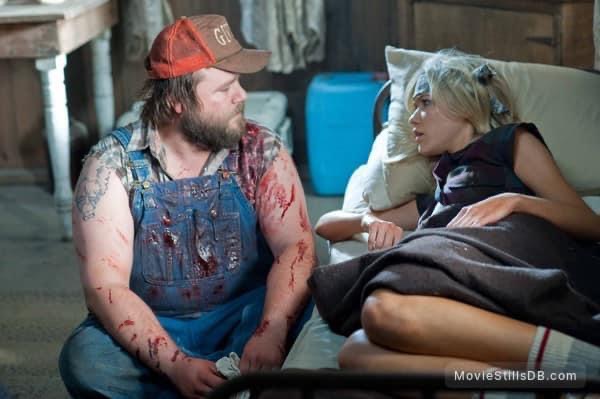
Themes and Underlying Message
Beyond the laughs and gore, Tucker and Dale vs. Evil touches on themes of prejudice and the dangers of judging others based on appearance. The entire premise hinges on the fact that the college students project their own fears and assumptions onto Tucker and Dale, who, because of their rural background and appearance, are immediately assumed to be villains. The film suggests that fear and ignorance can lead to violence and misunderstanding, and that appearances can be deceiving.
In contrast, Dale’s character arc is about overcoming his own insecurities. Though he sees himself as unworthy of Allison’s attention due to his lack of formal education and rough appearance, he eventually proves to be the most decent and heroic character in the film. This theme of self-acceptance gives the film a surprising emotional core amidst the chaos.
Conclusion and Final Thoughts
Tucker and Dale vs. Evil is a clever, hilarious, and surprisingly heartfelt horror comedy that successfully turns the slasher genre on its head. Its blend of slapstick humor, strong performances, and satirical take on horror tropes make it stand out in a crowded genre. Alan Tudyk and Tyler Labine shine as the lovable leads, bringing warmth and humanity to characters that are usually treated as one-dimensional villains in traditional horror films.
While the film’s humor may be too dark or gory for some, fans of horror comedies like Shaun of the Dead will find much to love here. Its unique premise, coupled with its sharp writing and subversive take on familiar horror conventions, make it a cult favorite and a must-watch for those looking for something fresh in the genre.








